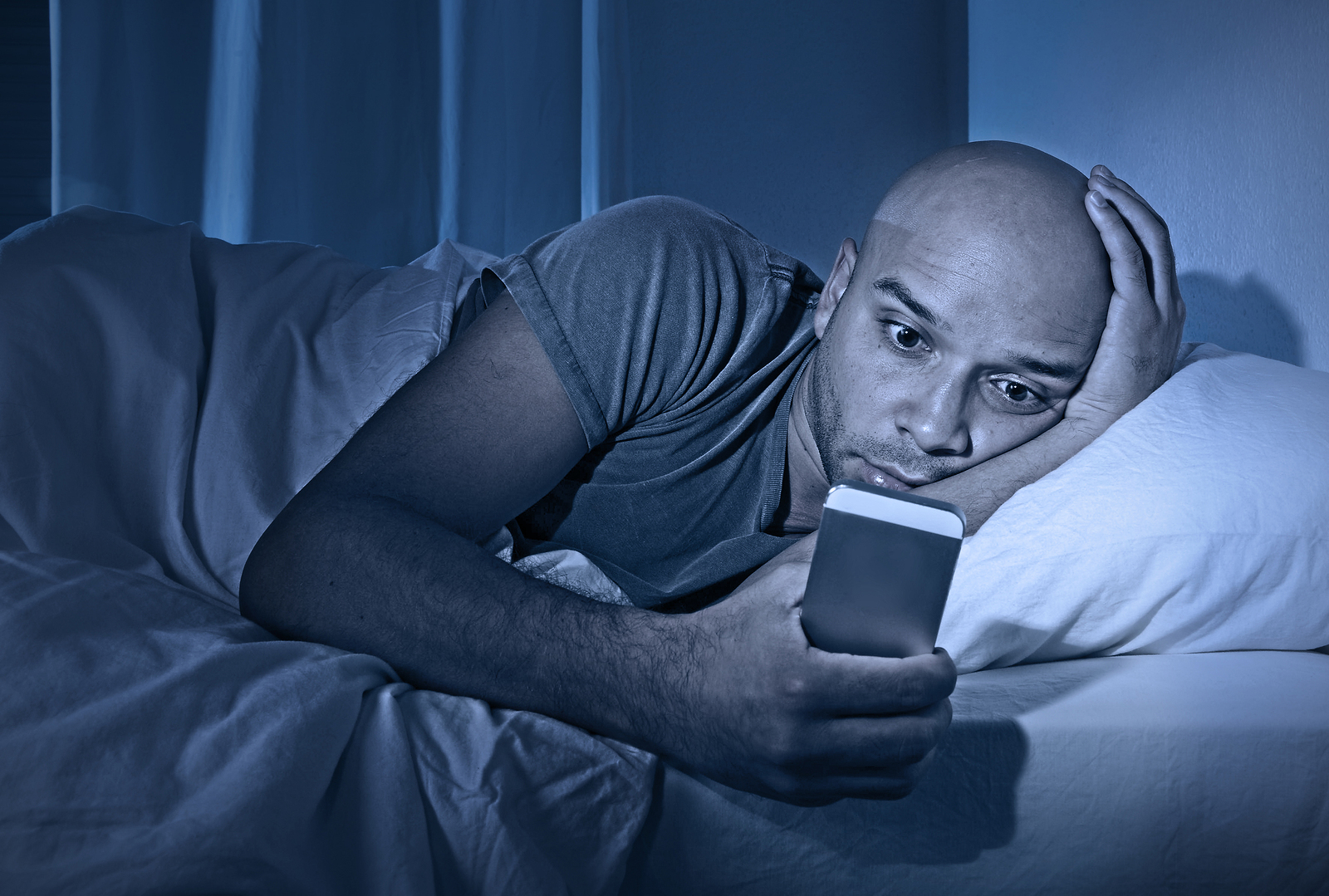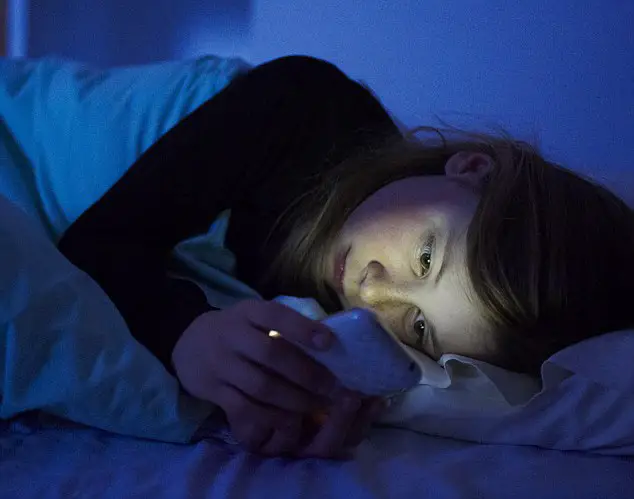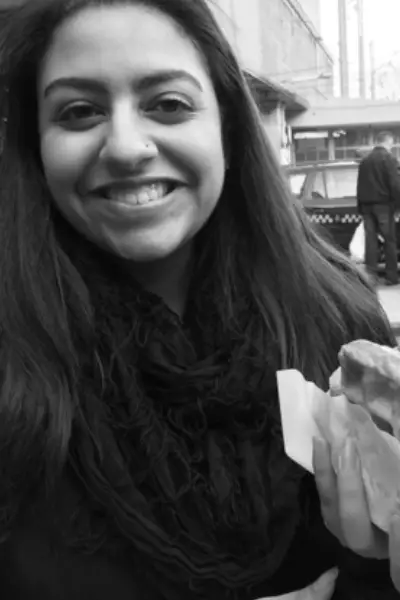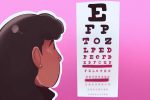A *Science* Based Appeal for Old-Fashioned Writing
Don’t go toward the (blue) light.
By Sofia Rivera, Simmons College
“I’m literally not tired at all,” I tell Skype’s pixelated version of my friend’s face. “What time is it there?” She asks.
“Um…” I stall, too embarrassed to say. “Alright yeah I have class in the morning, so I guess I should hang up.”
As soon as I click out of the call and shut my laptop, the spell is broken. I blink and realize my contacts have grown dry. My eyes, now overcompensating, water profusely and lightly sting. Just seconds ago I felt completely awake, but I suddenly feel exhausted. “I’ll study and shower in the morning,” I fleetingly think to myself as my head hits the pillow, a lie I don’t have time to admit to myself.
The next night the same thing happens, this time as I exit Netflix after the third consecutive episode of “Unbreakable Kimmy Schmidt.” Click, heavy eyelids, pass out. The night after that, the sleep finally pummels me just after I click out of a particularly poisonous combination of Facebook and Buzzfeed. Even when I downsize screens and scroll through my Instagram feed instead, I always feel like I’ve been sucker-punched the next day.
The morning after, the laptop hangover is bad. I feel regretful, tired and not at all ready for the day. I’ve slept through six alarms and in some cruel coincidence woken up just before the seventh one goes off.
If this sounds like you, then there’s a way out. And if it doesn’t, then you’re lying to yourself, or a very well-adjusted and responsible human being, which is just as bad.
The luminescence of your laptop or phone screen may seem like a harmless nightlight, but if you wake up feeling lifeless and regretful, it is doing more harm than good.
Beyond the vaguely shitty feeling the nocturnal screen time leaves us with, *science* has slammed down its gavel and ruled the glow our computers give off legitimately harmful to our health.
Blue light, which is the wavelength our favorite screens love to emit, messes with our sleep cycles. Before you start holding up garlic to ward off the evils of blue light, it’s not all bad. Whether you want to be or not, you’re exposed to it every time you’re out in the sun. But when the sun goes down, and you unnaturally introduce excessive amounts of blue light to your eyes during all hours of the night— that’s when the problem begins.
Light from the blue range of the spectrum specifically lowers our melatonin levels (the hormone that regulates our internal body clock) thus tricking our brains into thinking it’s not time to sleep. During the day, this can be great because it helps us stay awake, alert and working. And sure, maybe that’s also helpful for the occasional all-nighter when you’ve left a paper until the night before. But long-term, too much exposure to blue light past bedtime can lead not only to sleep deprivation and looking not too hot the next day, but serious health issues like cancer, diabetes, heart disease, and obesity, according to multiple studies.
There’s also evidence that it may be bad for your eyesight, which makes sense as we stare at our screens, eyes pried open by some invisible force like a Clockwork Orange victim. But this perception of being awake is hardly consciousness at all; the zombie-like state that keeps us clicking into the wee hours of the morning isn’t productive. But fear not— there’s a light at the end of the tunnel, and it doesn’t come from any screen.
Remember those rectangular collections of pages you used to leaf through in high school? Or the blocks of paper you dropped a couple hundred on at this beginning of this semester, that remain uncreased in a neat stack on the corner of your desk?
Those are called books, and they’re perfectly viable options for entertaining your eyes when you’re not quite ready to sleep.
Not only does their lack of blue light let your brain and eyes properly communicate about falling asleep, but you’ll actually learn without even trying. As a writer, reading helps you develop your own writing style by seeing what others do that works and that doesn’t. You’ll expand your vocabulary, and impress your professor next time you use it. You’ll find a new favorite quote and get it tattooed on your lower back, an academic’s tramp stamp. You’ll read about a time or a place you could never actually travel to, and experience it as if you could. You’ll realize the world is so much bigger than you— and all without leaving your bed.
When the stack of books you’ve been meaning to read for years dwindles now that you’ve read them all, no need to panic. There’s another option— this one is like a book, but blank. You probably have a modest collection of journals too, from graduation party attendees who felt guilty giving just money, or from your friend who travelled anywhere, or even from yourself when you decided (not for the first time) to really take up journaling.
But why not start? I have never consistently kept a diary, because I figure if it’s boring to me even as I write it, how interesting can I possible find it years down the road? The answer is, possibly very interesting. Over the summer I got into one of my deep-cleaning moods and turned all of the desk drawers upside down, forcing me to root through years of papers. On the first page of one particularly sparkly journal, in my younger self’s messy scrawl it said, “All I can see are the trees and the sky. A black bird just flew by.”
Having been perpetually banished to the back seat, and also being a short child, road trips were pretty viewless for a long time. Maybe it’s a ‘You have to have been there’ kind of thing,’ but when I showed the journal entry to my family we couldn’t stop laughing, remembering how they’d all coo at a cute pony or chuckle at a weird roadside attraction, while I remained clueless, literally only able to see the sky and tops of trees— a bird if I was lucky and vigilant.
During this year studying abroad I’ve tried to journal more often, and I’ve realized it doesn’t have to be a timetable of your day. It can be a doodle, a note about a cute moment you witnessed, a fragment of a conversation you eavesdropped on, a name with a heart around it. It could be a poem that doesn’t rhyme, a summary of a dream you had, or want to have, or just a stream of consciousness—you could be the next Faulkner, if you just give it a try.
Journaling, even erratically and not so well, has helped me to become more introspective. By seeing how I write about my life’s events and the people in them, I realize how I feel about them—it’s like self-therapy. As a result, I find myself feeling more positive, more forgiving and more thoughtful. That’s not to say I act on any of that, but awareness is the first step, right?
If journaling and books still aren’t your cup of tea, try reading more than just the Twitter headlines by delving into a newspaper, or writing a letter to the editor or just to your friend. There’s something about words on paper, whether they’re yours or someone else’s, they matter. The fact that we communicate with each other and with ourselves through ink and tree pulp is crazy—and it doesn’t give us diabetes or cancer. So try it for night. Close your laptop and lock your phone when the sun goes down and pick up some paper.
And if that’s too much work, there is eyewear that helps protect against the harmful effects of blue light—goggle up and get back to your Netflix.












